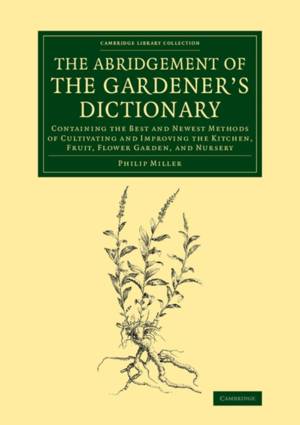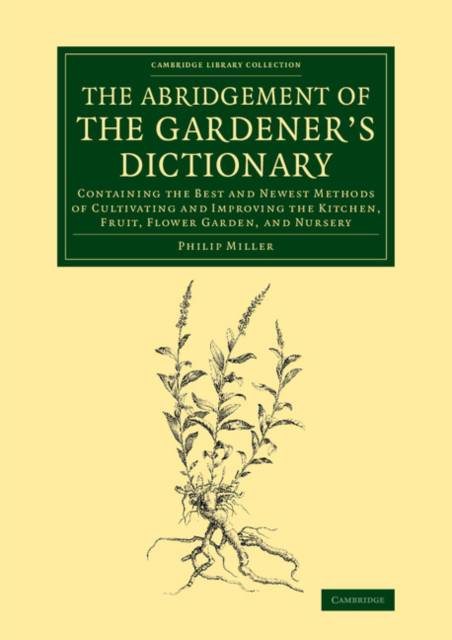
- Afhalen na 1 uur in een winkel met voorraad
- Gratis thuislevering in België vanaf € 30
- Ruim aanbod met 7 miljoen producten
- Afhalen na 1 uur in een winkel met voorraad
- Gratis thuislevering in België vanaf € 30
- Ruim aanbod met 7 miljoen producten
Zoeken
The Abridgement of the Gardener's Dictionary
Containing the Best and Newest Methods of Cultivating and Improving the Kitchen, Fruit, Flower Garden, a
Philip Miller
€ 203,45
+ 406 punten
Omschrijving
Trained by his father, a market gardener, Philip Miller (1691-1771) rose to become Britain's most eminent horticulturalist in the eighteenth century. Following a period as a nurseryman in Southwark, he was appointed the head gardener of the Chelsea Physic Garden by the Society of Apothecaries in 1722, upon the recommendation of Sir Hans Sloane. Under Miller's supervision, the diversity of plants at Chelsea outstripped that of all other European botanic gardens. His talent was equally reflected in his writings. Miller's most famous work, The Gardener's Dictionary, ran to eight editions during his lifetime, as did his celebrated abridgement, reissued here in its 1771 sixth edition. Ranging widely in coverage from agriculture to winemaking, as well as incorporating traditional gardening topics, the work reflects the progress of contemporary plant science and the breadth of knowledge acquired by one of its foremost practitioners.
Specificaties
Betrokkenen
- Auteur(s):
- Uitgeverij:
Inhoud
- Aantal bladzijden:
- 952
- Taal:
- Engels
- Reeks:
Eigenschappen
- Productcode (EAN):
- 9781108068512
- Verschijningsdatum:
- 20/02/2014
- Uitvoering:
- Paperback
- Formaat:
- Trade paperback (VS)
- Afmetingen:
- 210 mm x 297 mm
- Gewicht:
- 2231 g

Alleen bij Standaard Boekhandel
+ 406 punten op je klantenkaart van Standaard Boekhandel
Beoordelingen
We publiceren alleen reviews die voldoen aan de voorwaarden voor reviews. Bekijk onze voorwaarden voor reviews.








